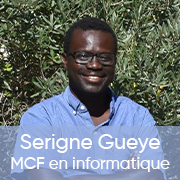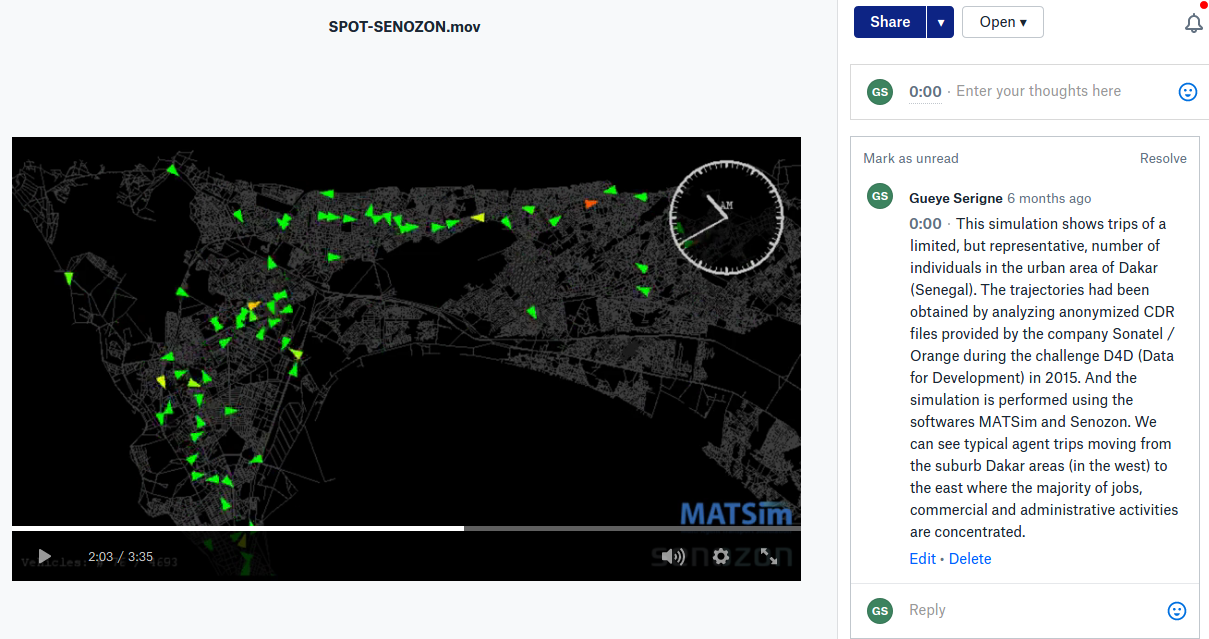[Portrait] Serigne Gueye, Senior Lecturer (HDR) in Computer Science
What is your research about?
They are in the field of operational research. They concern solving combinatorial optimisation problems and their applications.
Some of these problems can be described as academic or fundamental problems addressed for the theoretical questions they raise, or for the challenge they represent in terms of fundamental research: problems in graphs, solving quadratic problems, service location problems, graph partitioning (clustering), etc.
The other is made up of problems from applications, with a particular interest in those with a "societal" impact: urban planning problem, school assignment/location problem, estimation of international origin-destination flows in the air transport sector, etc.

What are your current scientific activities?
In 2020, I co-authored three articles, co-authored with colleagues from Senegal, Brazil and Avignon (Cyrille Genre-Grandpierre), dealing withapplications of operations research to urban planning problems : https://link.springer.com/article/10.1007/s12351-020-00549-7, https://journals.sagepub.com/doi/10.1177/2399808320913034 and https://www.mdpi.com/1999-5903/12/2/22.
They follow on from other contributions in this field, one of which won the 'data crossing prize' of the challenge Data for Development (2015) focusing on the societal exploitation of mobile phone data.
Technically, these contributions are also part of a field of research consisting of coupling mathematical optimisation and multi-agent (computer) simulation in the resolution of operational problems.
Why did you choose to work in academic research?
For the freedom it provides in implementing research projects that we feel make sense. For the possibility ofto continually expand their knowledgeThis is because difficult topics are never quite exhausted, and have connections to multiple scientific disciplines (even seemingly very specialised topics).
Academic research also goes hand in hand with teaching, especially if you are lucky enough to teach your field of research. Teaching it, at different levels, allows it to be deepened.
What advice would you give to students who want to do research?
I would advise approaching it through a topic (an issue) that motivates them. Something they believe in. Motivation is an essential fuel. But it allows for progress and creativity if it is accompanied by a open-mindedness sufficient, of the curiosityof "Endurance (perhaps more than speed) intellectualthe desire to dominate all facets of a subject, and the culture (in the broadest sense, not only scientific) that one builds throughout one's life.
Which object or image from your research best illustrates you?
This is a recent achievement. A work combining optimising the location of activities in an urban area (the one in Dakar, Senegal) and multi-agent simulation with the MatSim tool. The image is a screen shot of the movement trajectories of the inhabitants which depend on the activity locations optimised by an underlying algorithm.

Mis à jour le 22 December 2022